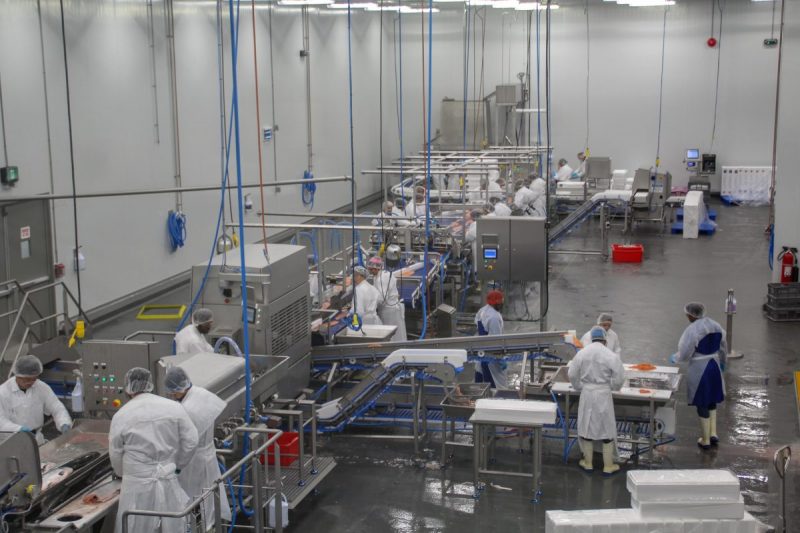Lawsuits mount against “unlawful” Discovery Islands aquaculture decision
Aquaculture supply and services companies sue current and former Fisheries Ministers for losses arising from their decisions to shut down salmon farms in the Discovery Islands
By Fabian Dawson
SeaWestNews
At least four companies which provide supplies and services to BC’s aquaculture industry are suing the Federal Government for losses amounting to tens of millions of dollars stemming from two ministerial decisions to shut down salmon farms in the Discovery Islands.
The companies allege that current Fisheries Minister Joyce Murray and her predecessor Bernadette Jordan “wilfully engaged” in making the “unlawful decisions” while being aware at all times that the actions would harm the companies and their employees.
Murray, Jordan and the Attorney General are named as defendants in the lawsuit brought by Aquatrans Distributors Inc., Browns Bay Packing Company Ltd. and Sure Cold Refrigerated Storage Inc. A separate lawsuit was filed by the Indigenous-owned J.W. Walkus Fishing Company.
The original decision to shutter 19 open-net salmon farms in British Columbia’s Discovery Islands was made in 2020 by former Fisheries minister Jordan.
Last April, the Federal Court ordered the government to set aside the decision due to procedural breaches by Jordan, and reaffirmed an earlier ruling that all the evidence provided showed “salmon aquaculture in B.C. poses no more than a minimal risk to wild salmon.”
Murray, who took over Jordan’s portfolio after the last election, then ordered up consultations with the stakeholders to meet the procedural requirements before making the same decision as her predecessor earlier this year.
Both ministers ignored their own scientists, who found in 10 studies that the farms had minimal impact on the wild fish migrating through the area.
Separately, Murray and her officials are also working on implementing an open-net pen transition plan for all of BC, expected to be finalized in the Spring of 2023.
The Discovery Islands decision is also being challenged by salmon farmers Mowi Canada West, Cermaq Canada Ltd. and Grieg Seafood BC Ltd and Wai Kum First Nation (Campbell River Indian Band) and and We Wai Kai First Nation (Cape Mudge Indian Band).
In its entirety, the Discovery Island decision alone will shut down more than 24% of BC’s farmed salmon production and kill the livelihoods of 1,500 people in the near term, according to an independent economic analysis.
Ryan Brush, general manager for Aquatrans, a specialty service truck carrier that has been moving fish and feed for the aquaculture industry since 1987, said the Discovery Island decision has negatively impacted at least a third of the company’s operations.
The company had specifically structured its operations, including building a new depot in Campbell River and obtained licences required to service the Discovery Islands’ Atlantic salmon fishery.
“We have had to terminate employees, lease our trucks to other vendors, dispose assets and attempt to repurpose facilities…the losses are in the millions,” Brush told SeaWestNews.
David Stover co-owner and the CEO of Brown’s Bay Packing Company, which has been processing salmon farmed since 1989, said the Discovery Islands decision has reduced his operations by about 40 per cent.
“At the height of COVID, we were declared an essential service to maintain food security and now in less than three years they are cutting our livelihoods…it just doesn’t make any sense to the hundreds of people who are losing their jobs,” said Stover.
“We need help, and we need answers but we are not getting either.”
The Indigenous owned and operated James Walkus Fishing Company, which has nine ocean-going vessels serving the open-net operations off Vancouver Island, said it has lost about 30 percent of its business.
“Aquaculture is key for our wild fish to thrive…The employment it creates for many of our First Nations and other Canadians is important,” said company founder James Walkus an elder of Gwa’sala-‘Nakwaxda’xw Nation.
Sure Cold in its writ said it has been providing custom chilled storage and inventory management for the Discovery Islands’ fisheries since 1995. Approximately 90% of Sure Gold’s business is directly dependent on aquaculture. Many of its impacted employees are recent immigrants to Canada.
Prior to the Discovery Islands’ decision, BC’s salmon farmers announced a new plan by BC salmon farmers to directly invest $1.4 billion in innovation, new technology and infrastructure, to boost Canada’s post pandemic recovery.
The investments through 2050 would create almost 10,000 new jobs and add a cumulative $44 billion in new economic activity to propel Canada’s Blue Economy, said a report by RIAS Inc., an independent economics consulting firm.
Many aspects of this plan are now on hold because of the government decision to shut down salmon farms in the Discovery Islands.
Image: Mowi had to shut down its fish processing plant in Surrey following the Discovery islands decision

